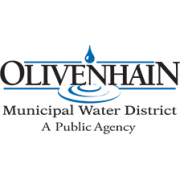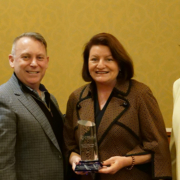California State Senate President pro Tem Toni Atkins of San Diego on Monday received the 2019 Safe Drinking Water Champion Award from the California Municipal Utilities Association in Sacramento.
“The award recognizes Senator Atkins’ leadership to work collaboratively with her colleagues in the Senate, Assembly and Governor’s office in securing funding for communities that do not have access to safe drinking water,” said Danielle Blacet-Hyden, CMUA director for water, as she presented Senator Atkins with the award.
Safe and Affordable Drinking Water Fund of 2019
In her role as leader of the Senate, Atkins was instrumental in bringing California together to find consensus and common ground that resulted in passage of the Safe and Affordable Drinking Water Fund of 2019. This long-term funding solution – a total of $1.3 billion over the next 10 years – will help ensure safe drinking water for the estimated 1 million Californians who currently lack it, and also fix failing water systems in vulnerable communities.
“Lack of clean water is something that seems almost unimaginable in 21st century California – yet there still are communities that do not have pure, wholesome, and potable water to drink, bathe, and use in their daily lives,” said Atkins during the award presentation. “Last year we passed a law that includes an ongoing source of funding to provide safe and affordable drinking water to communities suffering from contaminated supplies, without any new taxes or charges on working Californians or on our farming industry.”
Safe water without a drinking water tax
Atkins worked to secure safe water without adding a water tax. Water industry groups, including the San Diego County Water Authority, were among the broad coalition of water, business and civic interests that opposed the tax.
“Her leadership was vital to securing the funding needed to provide safe drinking water for the communities in California where unhealthy water is a problem,” said Glenn Farrel, director of government relations for the Water Authority.
Representing San Diego, Atkins was elected to the Assembly in 2010 and became Assembly Speaker in 2014. After one year in the Senate, in March 2018 she was sworn in as Senate President pro Tempore, becoming the first woman to lead the Legislature’s upper house.
The CMUA represents its members’ interests on energy and water issues before the California Legislature, the Governor’s Office and regulatory bodies, such as the California Energy Commission, the California Air Resources Board, the Department of Water Resources, the California Independent System Operator, and the State Water Resources Control Board. It was initially formed in 1932 to represent California’s community-owned electric utilities.




